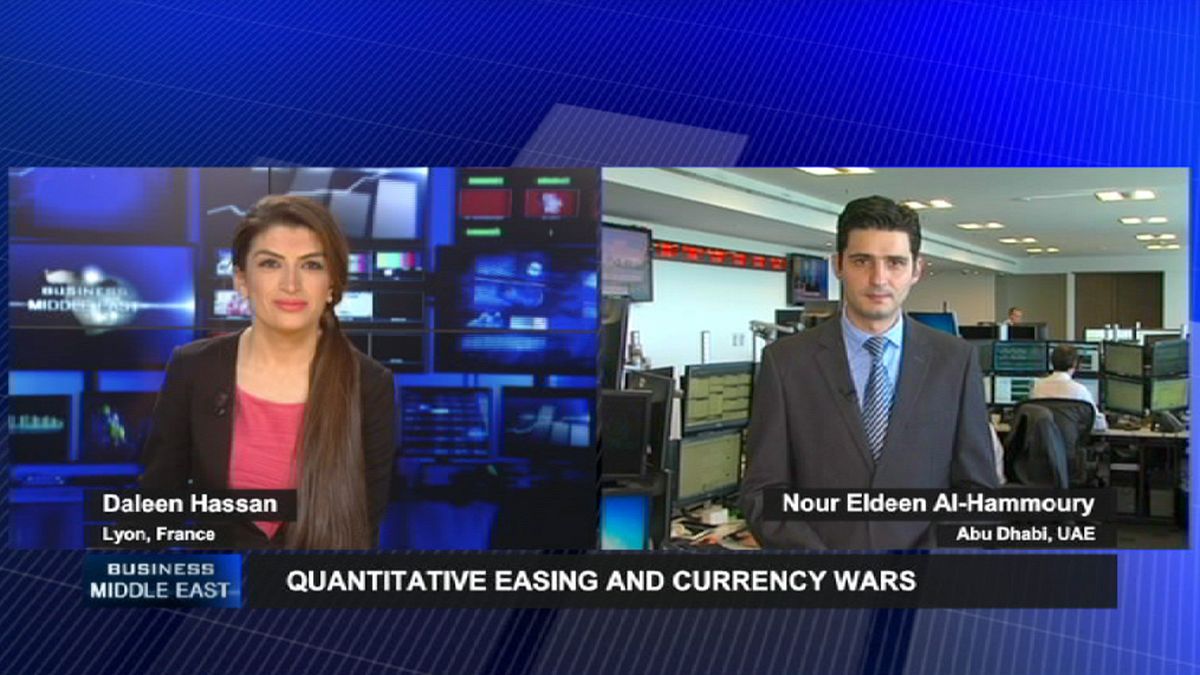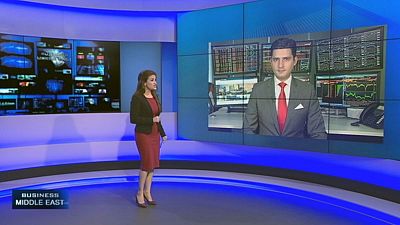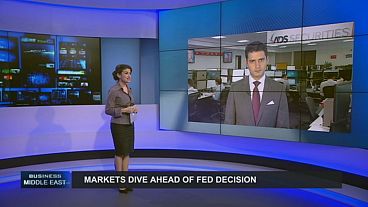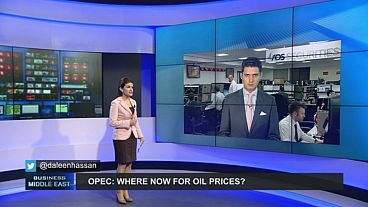Quantitative easing programmes by some of the world’s most powerful central banks comes under the spotlight in this edition of Business Middle East.
Japan shocked the financial world recently with the announcement of plans to pump even bigger amounts of cash into the economy through further QE.
The ECB is also looking at additional stimulus measures – perhaps including QE – to ward off the spectre of deflation in the euro area.
These actions risk starting currency wars that could impact the rest of the world in different ways.
Stimulus through quantitative easing is a radical monetary policy intended to boost economies where there is little or no growth.
Fearful that its efforts to revive growth are stalling, the Japanese central bank decided to increase its purchases of government bonds by a quarter and triple the amount it injects directly into the Tokyo stock market.
The announcement sent share prices soaring in Tokyo, and gave them a bump in China, even though economists warned the move could trigger a currency war, particularly in Asia.
In such monetary conflicts countries initiate policies that cause their currencies to fall in value making the goods they export cheaper, and giving them a trade advantage.
As Japan is the world’s third largest economy, with huge car making and electronics industries, that is a significant factor.
The eurozone, where growth is sluggish and deflation threatening, now has to decide if it needs to go down the quantitative easing path, and when.
Last week European Central Bank President Mario Draghi would only say they are preparing further measures “to be implemented if needed.’‘
This is all happening just after the Federal Reserve, ended its QE programme, having decided the US economy is recovering sufficiently that it no longer needs that stimulus.
For an analysis of what all that could mean for the Middle East euronews’ Daleen Hassan spoke to Nour Eldeen Al-Hammoury, the chief market strategist with ADS Securities in Abu Dhabi.
DH: “From the American experience it seems quantitative easing does work, but is it that simple?”
NAH: “Well, it’s not that simple. Basically the QE, or cheap money policies have had some positive impact on some sectors, but at the same time there is a lot of talk that the situation right now is even worse than before.
“QE did push up asset prices and even benefited the stock market. However, it did not help the real economy. So, for now – as we saw in Japan – more and more money continues to come in. This is going to have a positive impact on the short term, but not on the longer term because these balance sheets from the central banks are expanding and reaching record levels. It’s almost impossible to unwind these balance sheets without damaging the global market and the stock markets.
DH: “If there is a currency war, and the Japanese yen weakens further, what effect could that have on economies and stock markets around the world, particularly in the Middle East?”
NAH: “Well, globally first; the QE we have seen from the Bank of Japan pumped up all the equities across the globe. We’ve seen the Nikei 225 increase more than 10 percent in a few days after the announcement of QE.
“This kind of situation where all the central banks are trying to weaken their currencies, at least for the Middle East, it’s going to be positive and we’ve seen the positive impact of these cheap money policies from the Bank of Japan, across the globe and even in the Middle East. However, the Middle East impact will be limited in terms of the stock market.
“At the same time the importers will be benefiting from the weakening yen, as they can bring in more and more imports from Japan but at lower prices.”



